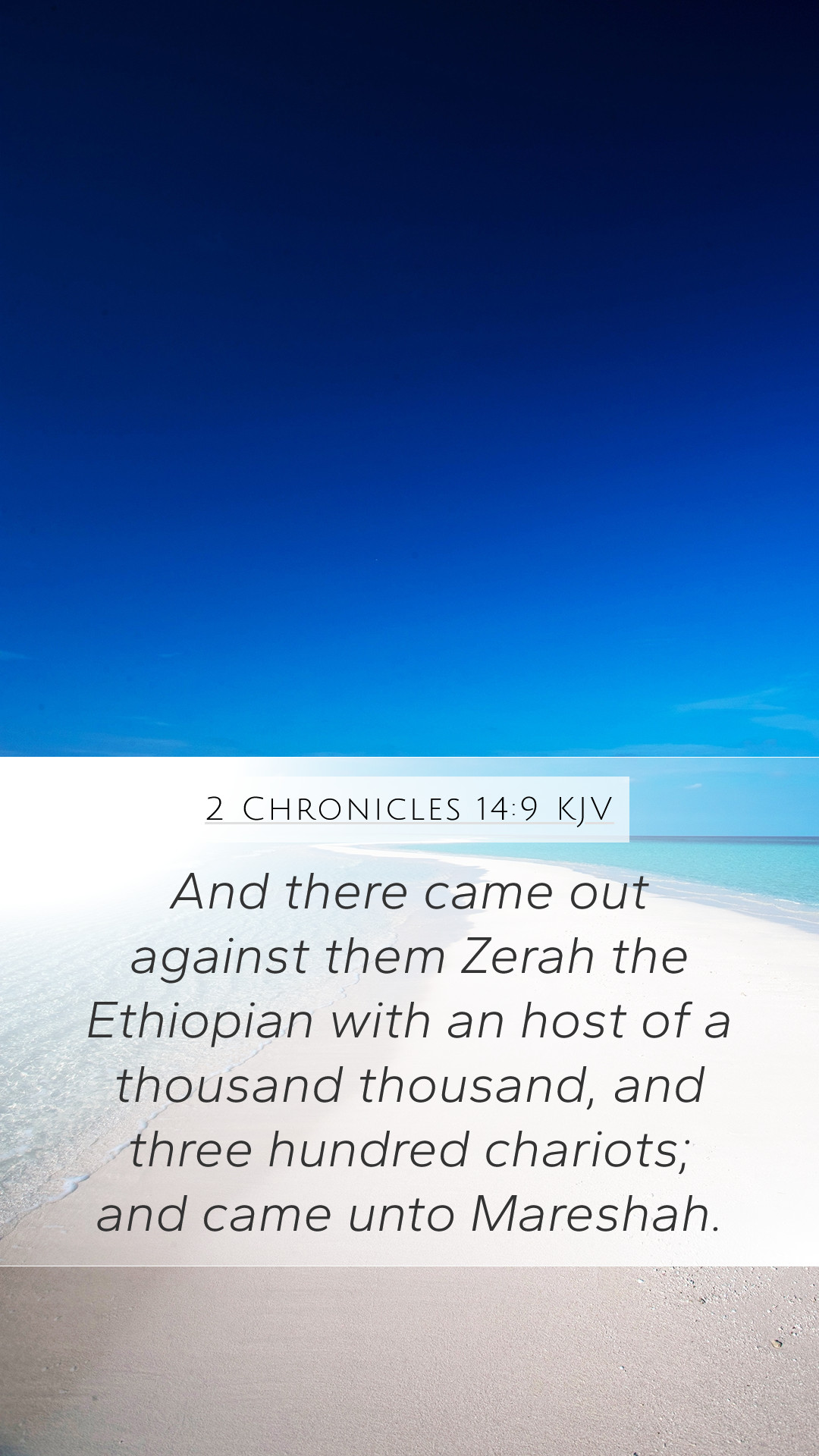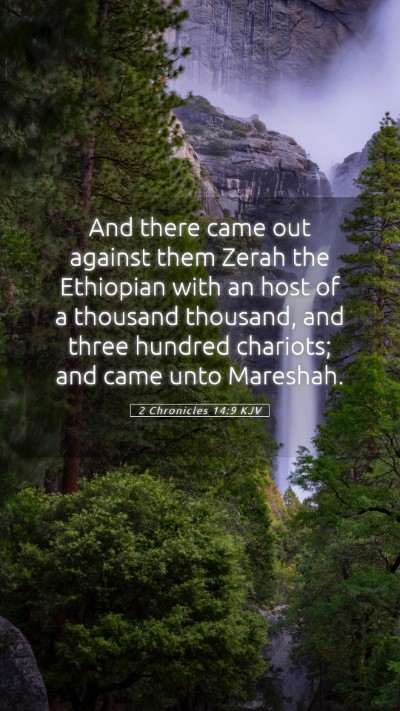Exploring 2 Chronicles 14:9
In 2 Chronicles 14:9, we find a significant moment in the history of Judah during the reign of King Asa. This verse states: "And Zerah the Ethiopian came out against them with an army of a million men and three hundred chariots; and he came to Mareshah." To understand this verse and its implications, we can draw on insights from respected public domain commentaries.
Bible Verse Meanings
This verse illustrates the challenges faced by King Asa, representing a critical moment of conflict that required divine intervention and strategy. The sheer size of Zerah's army emphasizes the daunting task ahead of Asa, highlighting the themes of faith and reliance on God amid insurmountable odds.
Interpretation from Matthew Henry
Matthew Henry provides a comprehensive analysis, suggesting that Asa's situation illustrates the principle of trusting in God during trials. He notes that Zerah's formidable army, consisting of a million men and numerous chariots, symbolizes overwhelming adversities that believers might face. Asa's response, rather than succumbing to fear, demonstrates faith in God's ability to deliver. Henry underscores the importance of prayer and seeking God's assistance when confronted with life's challenges.
Insights from Albert Barnes
Albert Barnes offers further insights into the context of 2 Chronicles 14:9, emphasizing the implications of Zerah's invasion, which was a significant threat to Judah's stability. Barnes highlights the geographical significance of Mareshah, indicating that the battle was not just a physical struggle but also involved strategic concerns for the Kingdom of Judah. Asa's leadership during this crisis is portrayed as an embodiment of reliance on divine strength rather than mere human ability.
Analysis by Adam Clarke
Adam Clarke expands on the significance of the numbers mentioned in the verse. He theorizes that the size of Zerah's army reflects the economic and military strength of Ethiopia during that period. Clarke posits that the mention of chariots indicates advanced warfare techniques, increasing the likelihood of a challenging confrontation. He also discusses how this event foreshadows Asa's reliance on God rather than military might alone.
Key Themes in 2 Chronicles 14:9
- Faith Under Pressure: Asa's reliance on God in the face of a massive enemy demonstrates the importance of faith during trials.
- The Power of Prayer: The context encourages believers to seek divine aid through prayer in difficult situations.
- Leadership and Responsibility: Asa's role as a leader reflects the responsibilities leaders have in seeking God's guidance for their people.
Cross References
- 2 Chronicles 13:3: Details another significant battle involving Judah.
- 1 Kings 15:9-12: Provides background on Asa's reign and spiritual reforms.
- 2 Chronicles 20:15: Highlights a similar reliance on God during threats from vast armies.
Application of 2 Chronicles 14:9
Understanding this verse is crucial for applying its teachings in our lives. It serves as a powerful reminder that no matter how overwhelming our challenges may appear, we can find strength in faith and prayer. The lessons drawn from Asa's experience encourage us to approach our difficulties with a sense of confidence based on trust in God's providence.
Conclusion
In conclusion, 2 Chronicles 14:9 is rich with meaning and relevance, showcasing the interplay between faith and adversity. The commentary from Matthew Henry, Albert Barnes, and Adam Clarke provides a framework for understanding this pivotal moment in biblical history. For anyone seeking deeper insights into Bible verse meanings and interpretations, engaging with this verse and its commentaries can foster a greater appreciation for God's sovereignty in our lives.


